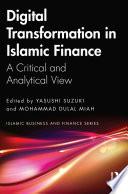
Islamic Law and Transnational Diplomatic Law
A Quest for Complementarity in Divergent Legal Theories
This book, in its effort to formulate compatibility between Islamic law and the principles of international diplomatic law, argues that the need to harmonize the two legal systems and have a thorough cross-cultural understanding amongst nations generally with a view to enhancing unfettered diplomatic cooperation should be of paramount priority.
- ISBN 13 : 1137558776
- ISBN 10 : 9781137558770
- Judul : Islamic Law and Transnational Diplomatic Law
- Sub Judul : A Quest for Complementarity in Divergent Legal Theories
- Pengarang : Muhammad-Basheer .A. Ismail,
- Kategori : Political Science
- Penerbit : Springer
- Bahasa : en
- Tahun : 2016
- Halaman : 280
- Google Book : https://play.google.com/store/books/details?id=BNP7CwAAQBAJ&source=gbs_api
-
Ketersediaan :
Freedom of Communication The right to freedom and security of communication, from a functional perspective, is highly necessary for the diplomatic mission to effectively perform its primary duties. The right to a free flow of ...









